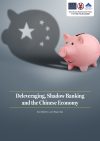UK adults are suffering from severe anxiety because of their financial circumstances. Here, John Ellmore, Director, NerdWallet, explores how consumers can keep their finances under control through this stressful time
Even the savviest of consumers can feel anxious about their finances on occasion; especially that final week before payday. However, the coronavirus pandemic has thrust financial worries to the forefront of many people’s minds, triggering a large surge in financial anxiety.
This spike hardly comes as a surprise. Since the beginning of lockdown, job security has been shaken to its core; indeed, 649,000 people lost their jobs between March and June, with the number of people claiming work-related benefits currently sitting at 2.6 million. And the statistics do not suggest the future will get brighter any time soon; the UK’s economy shrunk by 19% between March and May, making a recession seems unavoidable. With so many livelihoods on the line, many consumers are worrying about the strength of their bank balances.
Unfortunately, the UK’s predicament is doing nothing to soothe consumer confidence. Indeed, almost a third (31%) of UK adults have seen their personal finances decrease as a result of the coronavirus, research from KnowYourMoney.co.uk reveals. What’s more, a quarter (28%) of UK consumers are worried about their financial situation.
The question, therefore, is how can consumers look to improve their financial predicament in the wake of such an economic downturn?
Brutal honesty
Whilst this may seem like an obvious point, the noting of all financial incomings and outgoings is a great place to start. Noting down expenditures is an excellent way to grasp for financial help and, most importantly, identify problematic spending behaviour. Once troublesome spending has been identified, it must be eliminated.
Many people don’t even realise they are spending so much. This could even be on smaller items such as clothes – according to KnowYourMoney.co.uk’s aforementioned research, 23% of UK adults were guilty of spending too much on online shopping. Simply cutting out the smallest online expenditure is positive step towards consumers living within their means.
Conducting a financial audit could also encourage consumers to be savvier with their spending. Many consumers fail to shop around for a better deal – for example, 12.9 million households auto-renew their home insurance – and this could be costing them dearly. For those unsure where to begin, comparison websites are a great first step. They search the market for a variety of products – from groceries to care insurance – and clearly lay out the cheapest options so consumers can make the most cost-effective choice to suit their needs.
Build a rainy-day fund
With job security under threat, consumers must do what they can to cushion the financial blow should the worst happen, and they are made redundant. So, building an emergency fund is a vital step. It may seem daunting; however, it needn’t be so complicated.
To start, set a savings goal; a sensible starting goal should be between three to six months’ salary. Next, consumers should choose a savings account to suit their circumstances. Easy access savings accounts are usually the best option, as they allow consumers to access their money immediately, without penalties of loss of interest. Whilst these accounts don’t offer competitive interest rates, some can over 1%, so consumers should conduct thorough research before choosing an account.
To ensure savings are kept on track, it is sensible to set up a direct debit from consumers’ current account to their savings account; this will ensure they don’t stray from their savings goals. Some banks even offer additional assistance in this area by giving customers the option to round up the price of transactions and place the difference in their savings account. For example, if a customer paid £4.50 for their lunch, they would have the option to round the overall cost up to £5 and place the extra 50p into their savings account.
Credit checks
In tough economic climates, such as a recession, credit markets can tighten. This means that people with a lower credit score might find it harder to take on a credit card, overdraft, mortgage or loan. However, consumers are still able to improve their credit score. Simply making sure bills and credit cards are paid on time is an easy way to start.
That said, there may be times where money is tight and payments are difficult. In this case, large repayments, such as mortgages, might prove difficult. If this occurs, consider speaking to your lender about the possibility of a mortgage holiday, or temporarily switching to interest-only payments for a short period of time. This could reduce monthly bills without causing too much damage to your credit score – although consumers should check with their provider if this is definitely the case, as sometimes these options can negatively impact credit ratings. It’s also worth noting that these choices could mean you pay more in the long-term.
Help is at hand
Consumers must remember that they don’t need to muddle through the financial maze alone; help is always available. Whether they need financial support from a mortgage help scheme, or emotional support from a debt charity like StepChange, consumers should never be afraid to ask for help.
This is an uncertain and challenging time for many – and finances appear to be more strained than ever before. However, consumers can ease their doubts by taking small steps to strengthen their financial situation in the face of a recession. Even the smallest actions greatly contribute overcoming financial anxiety and strengthening bank balances.
Editor's Recommended Articles
-
Must Read >> COVID-19: How does the furlough scheme work?
-
Must Read >> How to support local businesses during lockdown
































